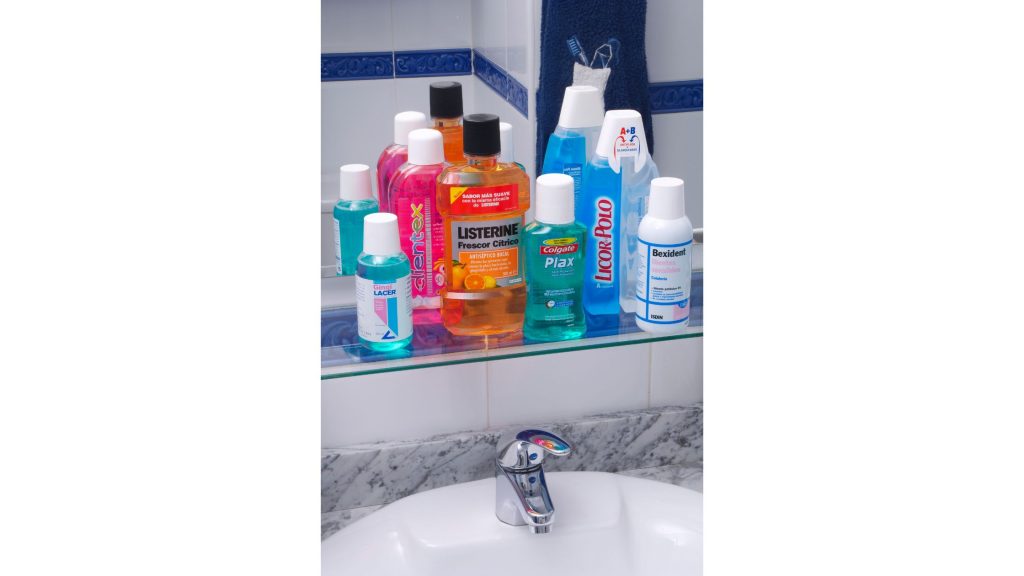Do you often think about whether mouthwash will work on small or any kind of wounds?
Did you ever feel like that whether using a mouthwash can disinfect a cut?
Can you use mouthwash to clean a wound?
Or is it possible to clean a wound using mouthwash?
Let’s explore the words of this article to understand the topic in a better way.
The production of mouthwash
Mouthwash is a liquid product that helps to whiten teeth, freshen breath, and sometimes depending on the products available in it, kills bacteria also.
Mouthwash is normally made with antibacterial agents, soaps, diluents, colorants, and flavorings
50% of the entire formula is made up of water and diluent which are known as the primary element of mouthwashes. Another diluent that is typically used in up to 20% of the formula is alcohol.
Flavor and color are added to increase the acceptability of consumption for customers.
The cleaning of wounds using mouthwash
Mouthwash is an alcohol-based product. Therefore in the past mouthwashes were used to prevent surgical infections in the form of an antiseptic.
In case we want to use mouthwash instead of ointment in emergency cases, before cleaning out the small wounds or cuts we must remember to use an alcohol-based mouthwash that will help to disinfect the skin.
Use or apply a q-tip, cotton ball, or a paper towel soaked in mouthwash on the wound if the cases are small cuts, blisters, or scratches.
Mouthwash as an antiseptic or disinfectant
The type of disinfecting alcohol that we buy from drugstores contains alcohol about 70-80% amount. While the alcohol concentration in mouthwashes is up to 25% generally.
This amount of alcohol in the mouthwash is not enough to work as an antiseptic.
But fortunately, a mouthwash named LISTERINE has been proven to kill 99.9% of germs. Though it has an alcohol concentration of up to 26.9%, it still has been proven extremely good as an antiseptic.
Why LISTERINE is good as an antiseptic mouthwash
Listerine is an antiseptic mouthwash of an American brand that has been named after its founder Joseph Lister and it is highly popular in the markets for years.
Ingredients that Listerine contains are- water, alcohol, sorbitol, phosphoric acid, thymol, disodium, phosphate, flavor, sodium fluoride, etc. Besides Listerine contains essential oils like menthol, thymol, methyl salicylate, and eucalyptol
In Listerine, all have an antiseptic effect in combination. Ethanol is toxic to bacteria at 40% concentration and in this product ethanol is present at a concentration of 21.6%. And the original gold Listerine antiseptic is present in a concentration of 26.9%.
Listerine can be used as an antiseptic or disinfectant on the skin for small cuts or wounds. As mentioned before, Listerine mouthwash was also used for the prevention of surgical infections. That is why Listerine is always a good choice as a mouthwash plus an emergency product for small accidents.
Ways to know whether the mouthwash is antiseptic or not
Antibacterial mouthwash, the former covering the broad spectrum of the organism and the latter covering certain ones.
If the bottle of mouthwash is listed with antimicrobial, antibacterial, or antiseptic, you can be sure that this mouthwash has been designed in a way to prevent germs that can be harmful to your oral health. If this is the case then it can be assumed that the mouthwash is good to work as an antiseptic for wounds or cuts.
More about mouthwashes and their harmful works
Until now the usage of Listerine mouthwash on wounds has been identified as good.
But while using other mouthwashes, we cannot say whether they will be good/safe for the wounds and cuts or not. Because according to some safe sources, small or large whatever the size of the wound is, using mouthwash on those necessarily won’t give any good results.
Rather they might cause some trouble according to their level of concentrations of the containing elements. They may cause damage as maximum of the mouthwashes or can be said every mouthwash contains flavor and coloring agents, preservatives, etc. that might not be suitable for the wound.
Some experts suggest it is better not to use anything rather than using these mouthwashes. According to them, the body has the ability to cure the wounds by itself unless mouthwashes are used which contain ethyl alcohol and other non-disinfecting substances which will delay the process of healing.
They also mentioned that alcohol, hydrogen peroxide, and iodine are toxins that do not cure wounds but rather delay the healing process by the body itself.
Cleaning suggestions without these types of mouthwashes
- Clean water can be used to clean the affected area instead of using these disinfectant mouthwashes.
- Use mild hand soap and clean water to clean the skin around the wound
- Pat the place with a clean towel and dry it
- Cover the area with dressing and it must be new and clean
- Do not do anything to that place and let it dry and heal by itself
A lot of experts also claim that mouthwashes should not be used on open wounds as it does not affect and may delay the healing as it irritates the new cells that the body produces for the alleviation of the wounds.
Conclusion
From the above words, we can say mouthwashes can be good as well as bad to the wounds at the same time.
A lot of people say that as an antiseptic mouthwash for wounds or cuts Listerine is a good option to go for. With all the good reviews on Listerine, it is believed that in an emergency situation when almost nothing is available, this mouthwash can be a good option.
But remembering the odd outcomes of mouthwashes mentioned by experts, it is also recommended not to use a lot of mouthwash and should be poured little by little so that it does not cause harm to the wound instead of benefiting.
We hope our discussion has been helpful to you.
